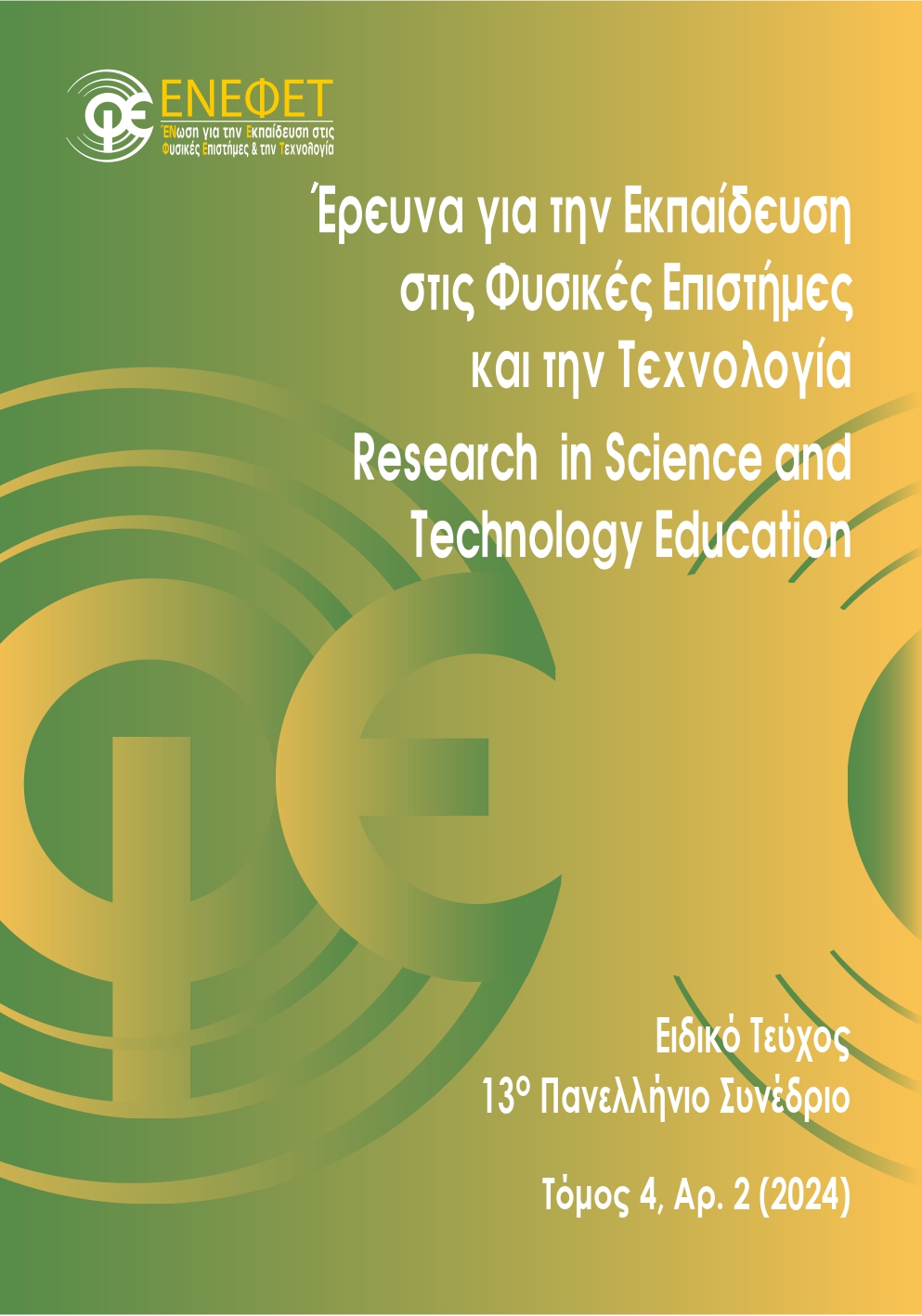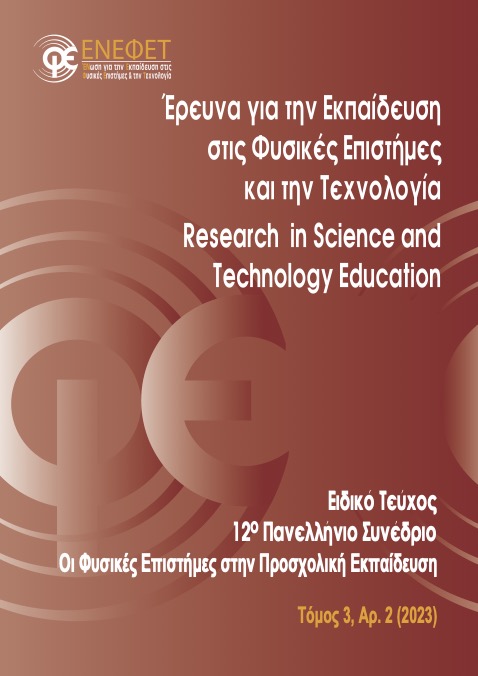Εφαρμογή Προσαρμοστικής Παιχνιδοποίησης στις Φυσικές Επιστήμες: Η Επίδραση στα Κίνητρα Μαθητών και Μαθητριών
Abstract
Τα τελευταία χρόνια η παιχνιδοποίηση έχει κεντρίσει το ενδιαφέρον ερευνητών/τριών και εκπαιδευτικών, κυρίως στην εκπαίδευση στις Φυσικές Επιστήμες (Φ.Ε), όπου οι μαθητές/τριες συχνά εκδηλώνουν αρνητικά συναισθήματα. Ωστόσο, η αποτελεσματικότητα της παιχνιδοποίησης εμφανίζει μικτά αποτελέσματα, οδηγώντας τους/ις ερευνητές/τριες να διερευνήσουν την προσαρμοστική παιχνιδοποίηση ως εναλλακτική προσέγγιση. Στην παρούσα μελέτη, κατασκευάσαμε ένα προσαρμοστικό περιβάλλον παιχνιδοποίησης το οποίο δοκιμάσαμε σε έξι τάξεις μαθητών/τριών της Γ’ δημοτικού στο Ηράκλειο της Κρήτης κατά το σχολικό έτος 2022-2023. Τα ευρήματα της μελέτης μας παρουσιάζουν ενθαρρυντικά αποτελέσματα όσον αφορά την αύξηση των κινήτρων, των απόψεων και των διαφορών μεταξύ των μαθητών/τριών στις Φ.Ε. Η παρούσα έρευνα συνεισφέρει πολύτιμες γνώσεις στο σχετικά νέο πεδίο της προσαρμοστικής παιχνιδοποίησης στην εκπαίδευση στις Φ.Ε.
Article Details
- How to Cite
-
ΖΟΥΡΜΠΑΚΗΣ Α. Ι., Καλογιαννάκης Μ., & Παπαδάκης Σ. (2024). Εφαρμογή Προσαρμοστικής Παιχνιδοποίησης στις Φυσικές Επιστήμες: Η Επίδραση στα Κίνητρα Μαθητών και Μαθητριών. Research in Science & Technology Education, 4(2), 81–110. https://doi.org/10.12681/riste.38123
- Section
- Research Article
Authors retain copyright and grant the journal right of first publication with the work simultaneously licensed under a CC-BY-NC-SA that allows others to share the work with an acknowledgement of the work's authorship and initial publication in this journal.




